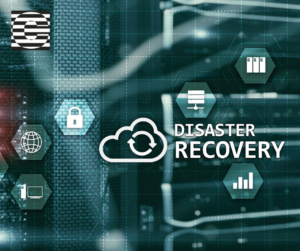Choosing the Right Data Backup Service for Your Business
Aug 5, 2024
The Importance of a Data Backup System
Data is arguably the most valuable asset for any business. Loss of data due to hardware failure, cyberattacks, or human error can have devastating consequences. Ensuring that your business has an effective data backup solution in place is essential for data integrity and business continuity. At Crossaction Business IT Specialists, we understand the importance of data security, and we’re here to help you choose the right data backup service for your business. Here are key considerations to guide your decision:
1.Understand Your Data Needs
Before selecting a backup service, it’s crucial to understand the nature and volume of the data your business handles. Ask yourself:
- What type of data does my business generate (e.g., financial, customer, operational)?
- How much data do we need to back up?
- How frequently does our data change?
These questions will help you determine the capacity and scalability requirements of the backup service you choose, ensuring it can handle your data load now and in the future.
2. Consider the Recovery Time Objective (RTO) and Recovery Point Objective (RPO)
RTO and RPO are critical metrics in disaster recovery and business continuity planning:
- Recovery Time Objective (RTO) refers to the maximum amount of time your business can afford to be without access to its data.
- Recovery Point Objective (RPO) refers to the maximum amount of data your business can afford to lose, measured in time.
Select a backup service that offers recovery options that match your business’s tolerance for downtime and data loss. Services with shorter RTOs and RPOs are typically more expensive, so align these metrics with your actual business needs.
3. Choose Between On-Premises and Cloud-Based Solutions
Data backup services can be broadly categorized into on-premises and cloud-based solutions. Each comes with its advantages:
- On-Premises: Provides control over your backup environment and can be more secure since data doesn’t leave your business premises. However, it requires significant upfront investment in hardware and ongoing maintenance.
- Cloud-Based: Offers scalability and flexibility, often with pay-as-you-go pricing models. Data can be accessed and restored from anywhere, making it ideal for businesses with remote work policies or multiple locations. Ensure the provider complies with relevant data protection regulations.
4. Assess Security Features
The security of your backup data is paramount. Evaluate potential backup services based on:
- Encryption methods (both during transmission and at rest)
- Compliance with industry standards and regulations (like GDPR, HIPAA, etc.)
- Multi-factor authentication and secure access controls
A reputable backup service will prioritize data security and help safeguard your data against unauthorized access and cyber threats.
5. Evaluate the Service Level Agreement (SLA)
The SLA outlines the expected performance and reliability of the backup service. Review the SLA for:
- Uptime guarantees
- Support responsiveness
- Data integrity assurances
An SLA that aligns with your business needs will ensure that you receive the support and reliability you expect from your backup provider.
6. Consider Ease of Use and Support
The complexity of managing your data backups should not hinder your business operations. Opt for a service that offers an intuitive interface and robust customer support. Automated backup capabilities, easy restoration processes, and 24/7 technical support can significantly enhance your experience and reduce management overhead.
7. Check Reviews and References
Finally, don’t underestimate the value of reputation. Check customer reviews and ask for case studies or references. A reliable backup provider will have a track record of satisfactory service and proven expertise.
At Crossaction Business IT Specialists, we are committed to helping you navigate the complexities of data backup solutions. By considering these key factors, you can choose a service that not only protects your valuable data but also supports your business goals. Remember, the right backup solution is a critical investment in your company’s long-term resilience and success.

